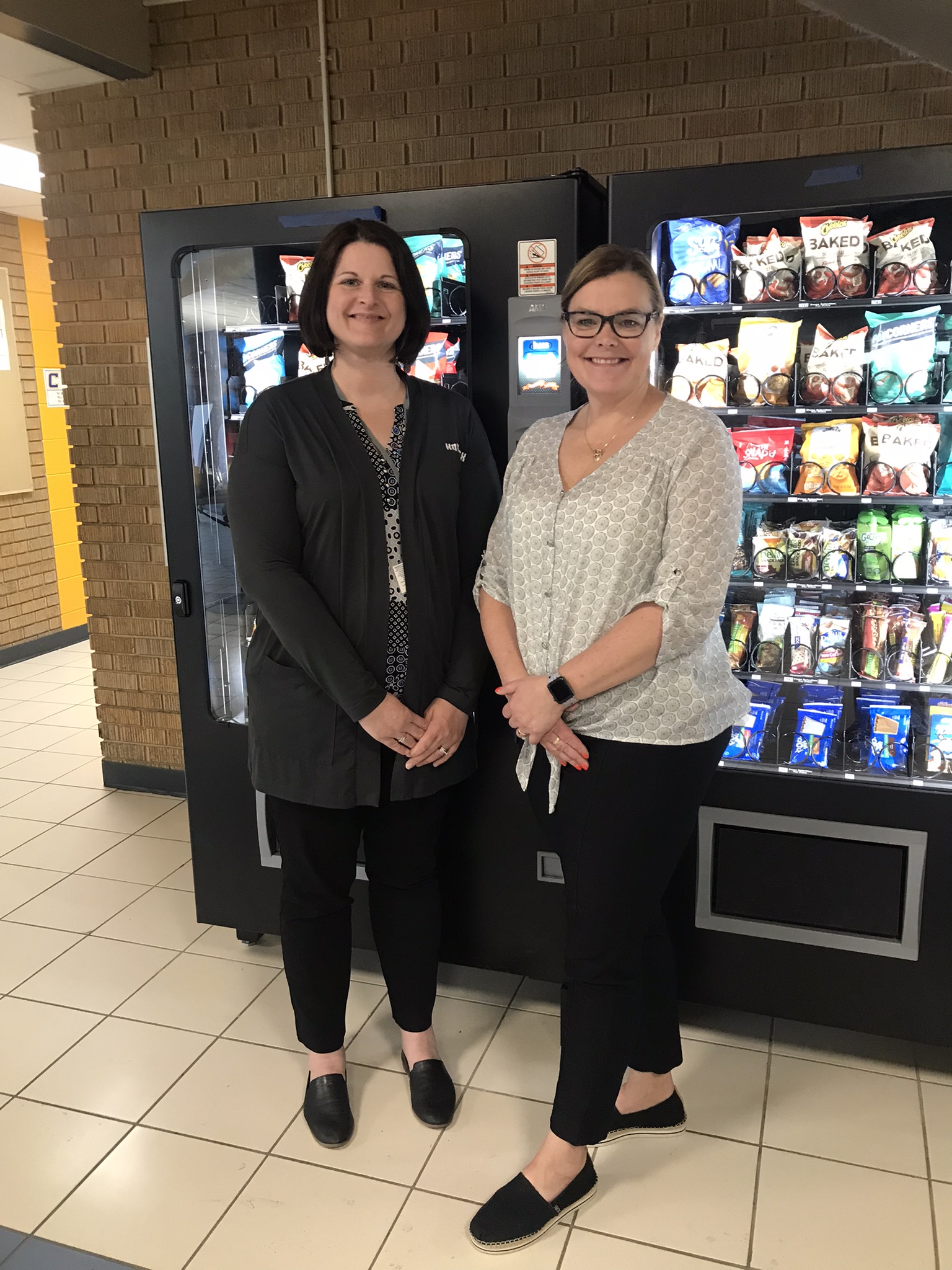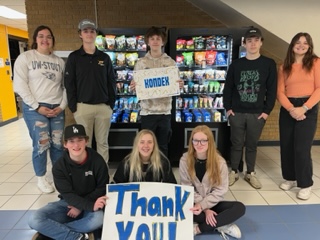The phrase, “All that and a bag of chips” couldn’t be more applicable to the vending machine project proposed by Campbellsport High School’s Entrepreneurship class, as it truly did provide a full-spectrum of business lessons to the students (and of course chips). Taught by Stephanie Waldschmidt, the nine students in this course were encouraged to identify projects or business opportunities that fill a need in the marketplace. They suggested replacing the outside-managed vending machines that weren’t being filled regularly with three new machines managed by the class. This quickly worked its way through the district channels, with a proposition for the students to raise money from the local community. Kondex is one of seven businesses to donate to the project, with much of this decision based on the students’ commitment to the project.
“I was intrigued by the passion the students had for taking a problem and finding a solution,” noted Kondex Organizational Development Leader Kelly Peterson. “The amount of research they did and asking businesses for donations was not an easy feat. I’m proud of the young adults in the Entrepreneurship class for taking some risks and pushing through the challenges to reach their end goal.”

Kondex Organizational Development Leader Kelly Peterson (left)
and Campbellsport High School Entrepreneurship Teacher
Stephanie Waldschmidt (right)
“This project would not have been passed without the community’s support,” commented Waldschmidt. “This is one of the most beneficial learning experiences for one class. With the students taking on the responsibilities of ordering, selling, resolving issues, providing change, and machine maintenance, they’re gaining a lot of real-world business experience.”
The students were also tasked with researching vending options that followed the federal government’s smart snack guidelines, presenting their project to the school board on multiple occasions, and (as part of their final exam) creating step-by-step video instructions on all processes of the machine. Throughout the course, students rotated positions weekly offering everyone exposure to accounting, inventory management, customer service, and compliance monitoring.
“This is now a fully sustainable function, with 50% of the vending machine profits being reinvested into the business and 50% supporting student funds and organizations,” Waldschmidt added. “The students feel great about the project. It wasn’t an easy task – they had some struggles. It’s been fun to see everyone working together to solve problems, and they have a lot of pride in what they’ve achieved.”





